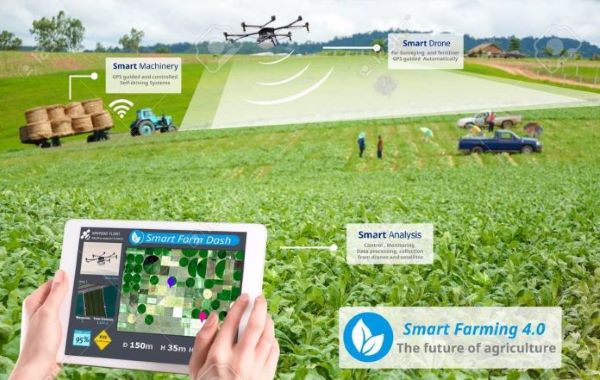Agriculture 4.0, the next agricultural revolution will need to look at the demand side and the value chain/supply side of the food-scarcity equation, using technology not simply for the sake of innovation, but to improve and address the real needs of consumers and re-engineer the value chain.
The world is expected to grow by 33% to 10 Billion by 2050 and by 2100 the world global population would be around 11.2 billion. These many people would boost demand for food exponentially.
The four main items that will affect the global agriculture and food chain in future will be demographics, limited resources (manpower, land, degraded soil etc.) climate change, food waste and government policies.
As population will continue to grow, Arable land is decreasing. As per FAO (Food & Agriculture Organization) soil quality degrades by excessive use of fertilizers, deforestation, climate and global warming (2). It is estimated with the population growth predications that amount of arable & productive land per person by 2050 would be one quarter of the total available in 1960.
Modern farms and agricultural operations will work differently, primarily because of advancements in technology, including sensors, devices, machines, and information technology. Future agriculture will use sophisticated technologies such as robots, temperature and moisture sensors, aerial images, and GPS technology, to list a few.
These advances will let businesses be more profitable, efficient, safer, and environmentally friendly. Agriculture 4.0, the coming agricultural revolution, must be sustainable, with science and technology at its heart. Agriculture 4.0 will need to look at both the demand side and the value chain/supply side of the food-scarcity equation, using technology not simply for the sake of innovation but to improve and address the real needs of consumers and re-engineer the value chain.
Agriculture 4.0 will no longer have to depend on applying water, fertilizers, and pesticides across entire fields. Instead, farmers will use the minimum quantities, or even completely remove them from the supply chain. They will be able to grow crops in arid areas and use abundant and clean resources such as the sun and seawater to grow food.
New farming methods like Hydroponics, vertical farming, algae farming, clean meat, desert and sea water farming will be supplying enough food for the future. The good news is that these digital and technological advancements are taking over the industry, enhancing the entire food value chain.
Agricultural technology startups, according to Agfunder, have grown more than 80 percent per year since 2012.
Understanding future farming equipment:
If we go back and start observing all the industrial or agriculture revolution, the main pivot point is productivity. Of course, without precision, productivity can never be achieved. Now going back to the first Agricultural revolution back to ages where human has started using animal power as source of power to convert into working output to now Agriculture 4.0 where all the system is connected through sensors and satellites and working for improving yield and sustainability.
Now, a simple tablet can control the whole farm. You can monitor remotely how tractors are working or are in idle condition using telematics. How many cows are in the stable or outside the field could be tracked? With drone you can program irrigation, image mapping of field for optimized localized fertilization. Further beyond Drones would be many autonomous swarms collecting data and performing farming tasks.
For the Future of global food demand all the above new innovations and new methods in agriculture need to work hand in hand and must be naturally sustainable to be a smart farming. Not to forget overall operation efficiency of the farm would will increase significant resulting in more productivity.
Government policies:
Farming is central to nation´s economy and basic food security. All the Innovations, technology and resources need to be structured so that every level of farmers could be benefited. No Matter the type of farmers or farming,
Not to forget climate change and volatility in agricultural product prices is also bigger concerns for farmers. Agriculture 4.0 will not be any reality any soon without government dedicated plan and support, as most of the farmers in Asia & Africa are not 100% mechanized and practically, they are struggling in Agriculture.
Why it is also important is that to regulate for a balance usage and application of newer technologies and methods. Green revolution in 1960s had exploited usage of pesticides and fertilizers resulting in the current less arable and loss of soil bio diversity.
Government could be only able to revive the agriculture industry solving issues like food security and climate change. This is time government can think of a new model for a balanced food value chain, sustainable farming methods, self-sufficient production for reducing import and exporting innovations and technologies than products.









[…] production for reducing import and exporting innovations and technologies than products. Source: Farmers Review Africa (adsbygoogle = window.adsbygoogle || […]
Comments are closed.